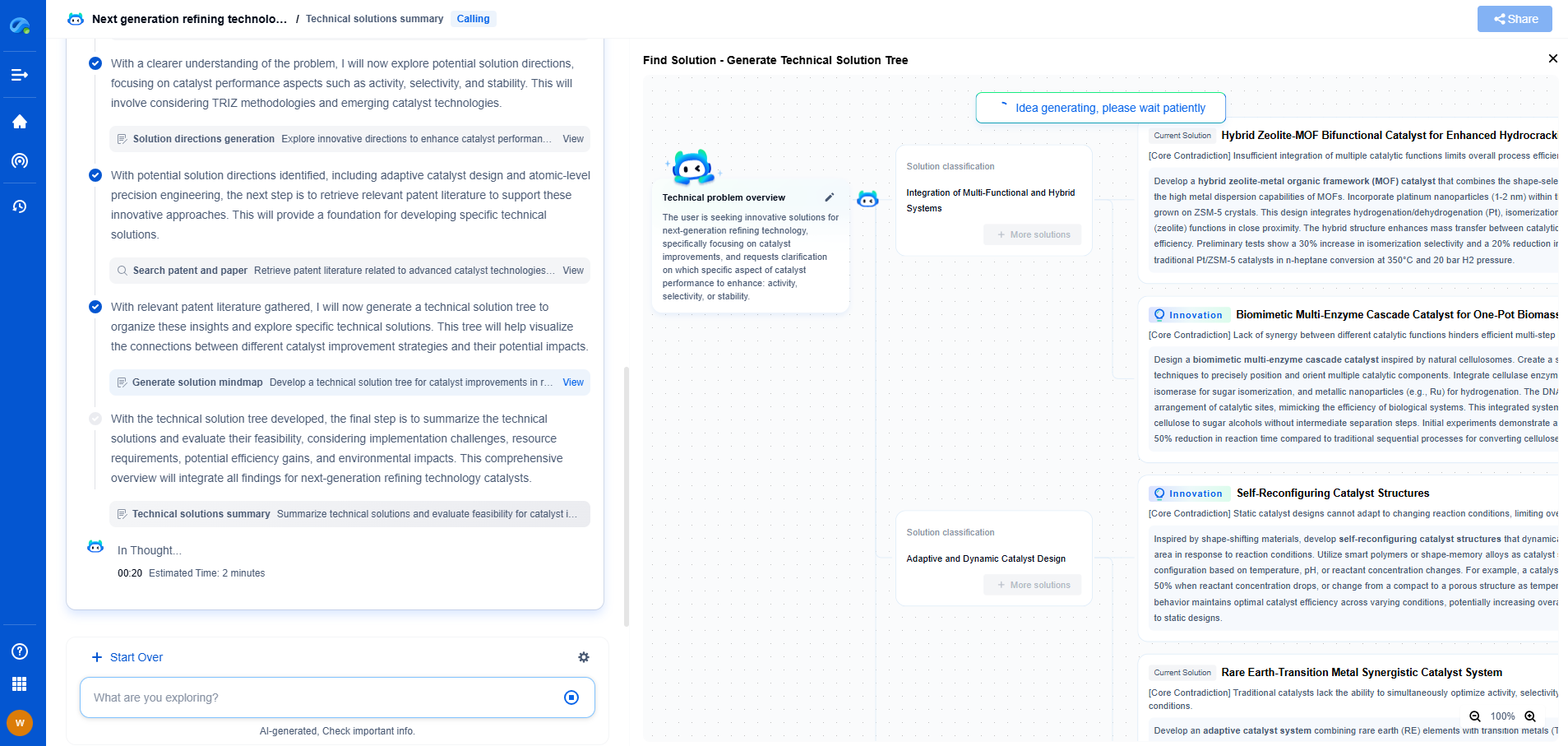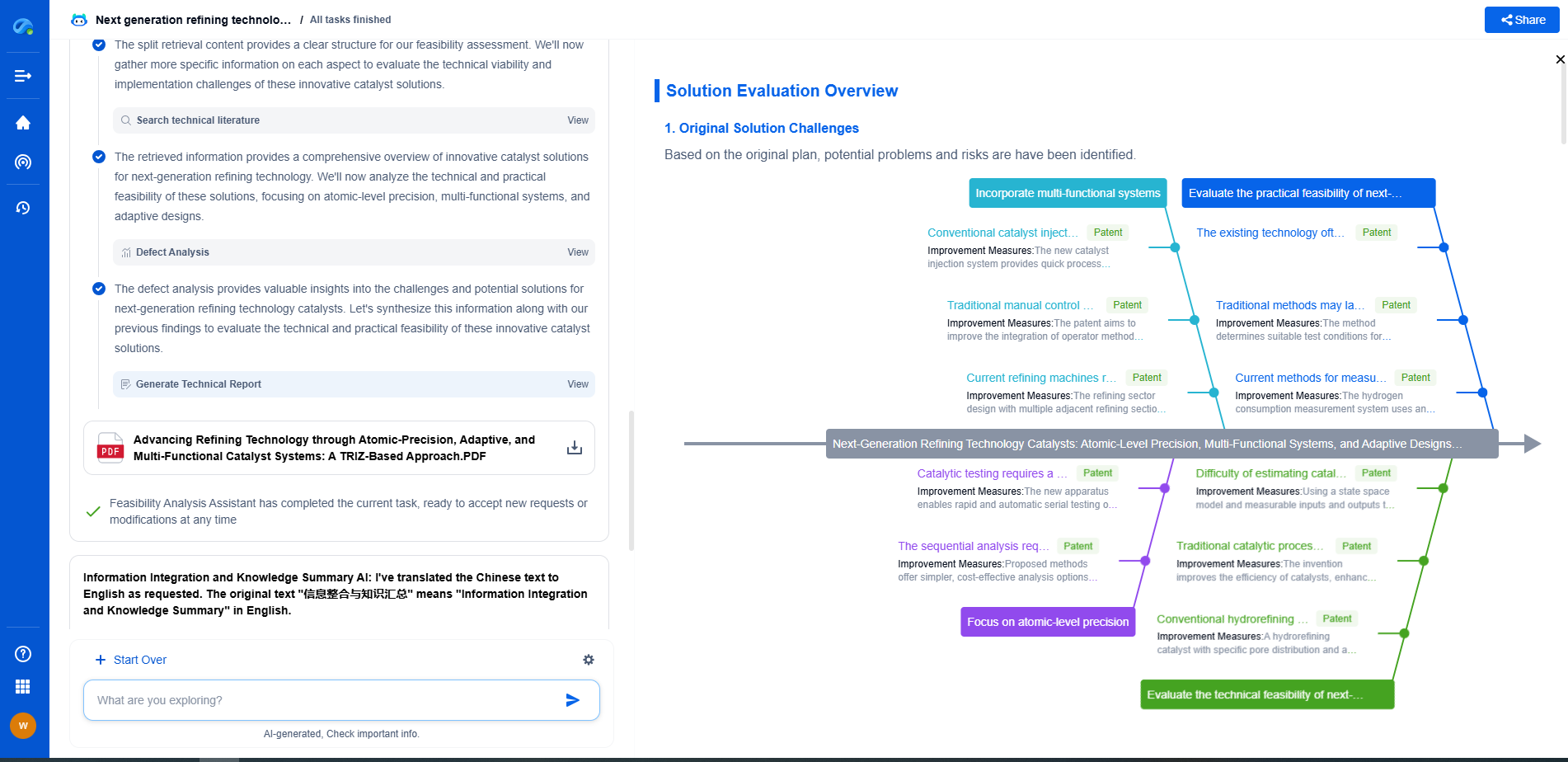The Dark Side of Cobalt in Lithium-ion Batteries
JUN 20, 2025 |
In recent years, lithium-ion batteries have become an essential component of modern technology, powering everything from smartphones to electric vehicles. These batteries offer high energy density, long life, and stability, making them a popular choice for manufacturers. However, one of the key materials used in their production – cobalt – has a dark side that raises significant ethical and environmental concerns. In this article, we will explore the complexities surrounding cobalt mining and its implications on human rights and environmental sustainability.
The Role of Cobalt in Lithium-ion Batteries
Cobalt plays a crucial role in lithium-ion batteries, particularly in the cathode, where it helps stabilize the battery and improve its energy capacity. This metal is prized for its ability to enhance battery performance and longevity, which is why it is heavily relied upon in the technology sector. However, the demand for cobalt has led to a surge in mining activities, predominantly in the Democratic Republic of Congo (DRC), which supplies more than 60% of the world’s cobalt.
Human Rights Concerns
The DRC, rich in natural resources yet plagued by political instability and poverty, is at the heart of the cobalt supply chain. Unfortunately, the mining industry in the DRC is marred by serious human rights violations. Artisanal and small-scale mining (ASM), a common practice in the region, often employs child labor and exposes workers to dangerous conditions. Miners, including children, work long hours in hazardous environments, often without basic protective gear, leading to numerous health risks and accidents.
Moreover, miners are frequently subjected to exploitation by middlemen and local officials, who pay them meager wages while reaping significant profits. This exploitation perpetuates a cycle of poverty and inequality, as the wealth generated from cobalt extraction rarely benefits the local communities.
Environmental Impacts
The environmental consequences of cobalt mining are equally alarming. The extraction and refining processes release toxic substances into the air, soil, and water, causing severe environmental degradation. In the DRC, mining operations have led to deforestation, habitat destruction, and the contamination of vital water sources, affecting both biodiversity and local communities that rely on these ecosystems for survival.
Additionally, the disposal of mining waste poses a significant threat to the environment. Tailings, the byproduct of mining, often contain harmful chemicals and heavy metals that can leach into the surrounding environment, posing long-term risks to both human health and wildlife.
Efforts Towards Ethical Sourcing
As awareness of the dark side of cobalt grows, there is a mounting pressure on companies to ensure the ethical sourcing of this critical material. Some tech giants and automotive manufacturers are taking steps to improve transparency in their supply chains and promote responsible mining practices. Initiatives such as the Responsible Cobalt Initiative aim to address human rights abuses and environmental concerns by encouraging companies to source cobalt responsibly and invest in sustainable mining practices.
In addition to industry efforts, there is a growing interest in developing cobalt-free or reduced cobalt battery technologies. Researchers are exploring alternative materials and battery chemistries, such as solid-state batteries and lithium iron phosphate (LFP) batteries, which could potentially reduce the reliance on cobalt and mitigate its negative impacts.
Conclusion
While lithium-ion batteries have revolutionized the way we live and work, the ethical and environmental challenges associated with cobalt extraction cannot be ignored. It is imperative for companies, governments, and consumers to work collaboratively towards developing sustainable solutions that prioritize human rights and environmental protection. By advocating for responsible sourcing and investing in innovative technologies, we can hope to mitigate the dark side of cobalt and pave the way for a more sustainable future.
Accelerate Breakthroughs in Fuel Cell and Battery Innovation—with the Power of AI
From solid-state battery breakthroughs to high-efficiency hydrogen fuel cells, keeping pace with fast-evolving chemistries, global patent landscapes, and emerging application pathways is an ever-growing challenge for R&D and IP professionals.
Patsnap Eureka, our intelligent AI assistant built for R&D professionals in high-tech sectors, empowers you with real-time expert-level analysis, technology roadmap exploration, and strategic mapping of core patents—all within a seamless, user-friendly interface.
Whether you're optimizing cathode formulations, evaluating electrolyte stability, or navigating the crowded patent space around battery pack design, Eureka empowers you to move faster and with greater confidence.
Start your journey with Patsnap Eureka today—streamline your research, enhance decision-making, and power the future of energy with AI-driven clarity.
- R&D
- Intellectual Property
- Life Sciences
- Materials
- Tech Scout
- Unparalleled Data Quality
- Higher Quality Content
- 60% Fewer Hallucinations
Browse by: Latest US Patents, China's latest patents, Technical Efficacy Thesaurus, Application Domain, Technology Topic, Popular Technical Reports.
© 2025 PatSnap. All rights reserved.Legal|Privacy policy|Modern Slavery Act Transparency Statement|Sitemap|About US| Contact US: help@patsnap.com

